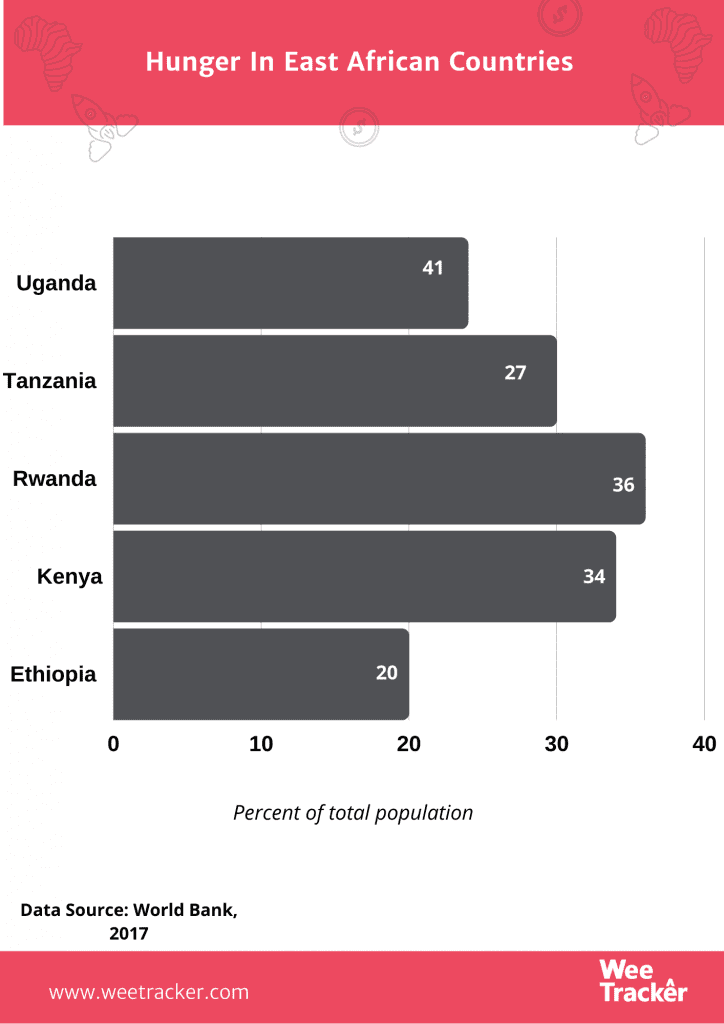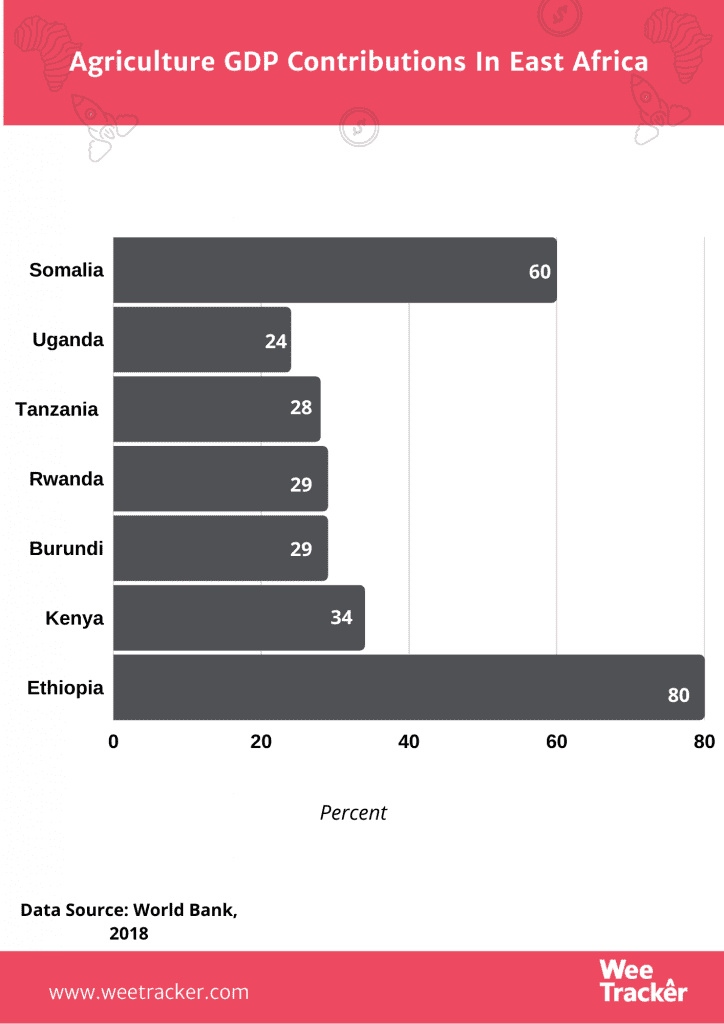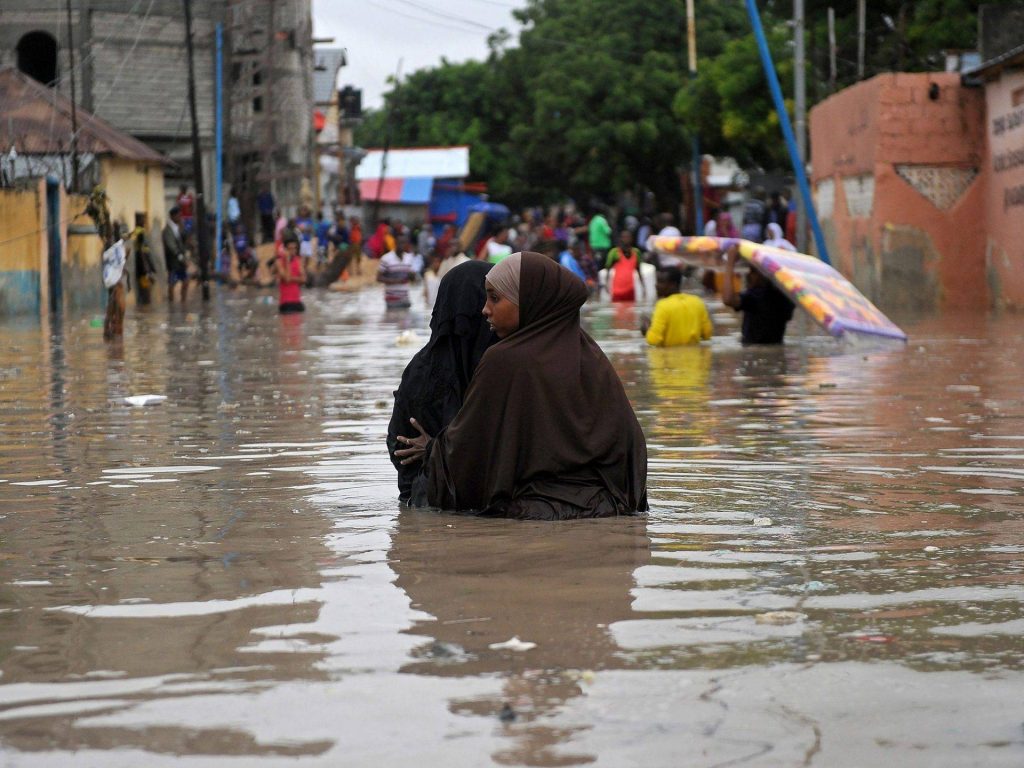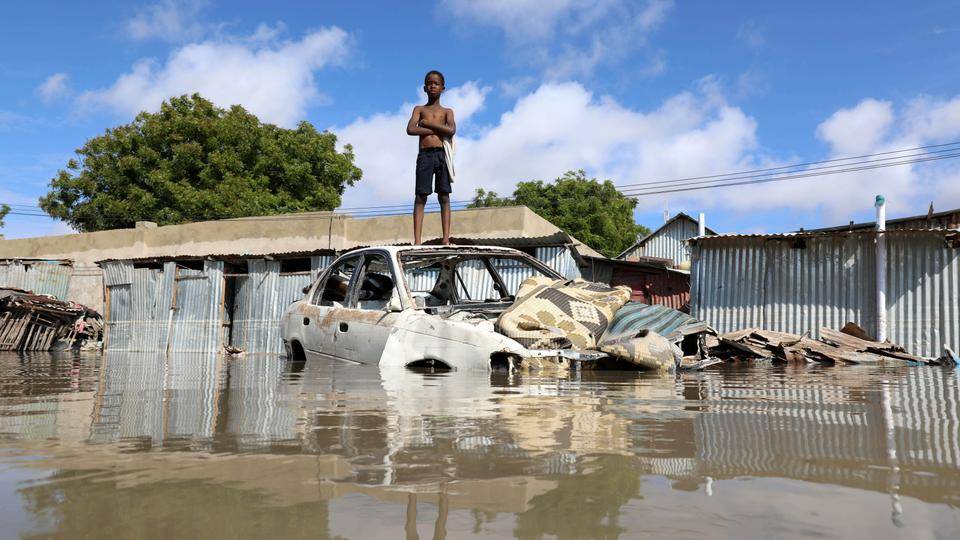East African Countries Are Embattled By A Three-Fold Crisis At The Worst Possible Time

Africa remains the least coronavirus-affected region in the world, inspiring speculations that the outbreak is being well-contained. But while the rest of the continent battles more to send the virus packing for the good of their economies, East African countries are met with a triple-threat problem. Covid-19 is not the region’s only outbreak—locusts and floods have joined to disrupt the lives of millions.
Flying In With Hunger
The recently-released Global Report On Food Crises revealed that over 25 million people in East Africa will experience acute hunger in 2020. But the region’s impending peril with food is not only associated with the insecurity brought on by Covid-19. Swarms of crop-eating locusts have invaded the region—its worst desert infestation in 70 years—threatening the food source of millions of people.
In the coming months, locusts will continue breeding in Ethiopia, Kenya, and Somalia. According to projections, fresh swarms would commune in June and move to the Sudan through South Sudan to wreak havoc to the Sahel region in West Africa. Nevertheless, the problem’s point of origin is already suffering devastating effects.
According to the National Geographic, an adult desert locust is capable of munching through its own body weight every single day, laying to waste about 0.07 ounces of vegetation.
A swarm can multiply to a charge of 70 billion insects, just about enough to blanket New York more than once. A swarm can destroy 300 million pounds of crops every day, eating much more daily food than 35,000 people.
This has been recorded as the worst locust plague in Ethiopia and Somalia for 25 years and Kenya for 70 years. While the region’s growing season is underway, the swarms are thresatening the efforts to mitigate the effects of the global coronavirus pandemic.
The United Nations Food and Agriculture Organization (FAO) says some 13 million people in Kenya, Ethiopia, Djibouti and Eritra already suffer from severe food insecurity, as they may go without eating for a whole day.

Already about 400,000 hectares of land have been protected from the locusts, or enough crops to feed about 5 million people, said Dominique Burgeon, FAO’s Director of Emergencies, “but it is only one part of the equation.”
The number of locusts continues to grow despite the control efforts, and if that work is not sustained, the combined threat with COVID-19 and flooding “could have a catastrophic effect,” said FAO Director-General, Qu Dongyu.
Washing Efforts Away
While locusts are giving food insecurity an unfortunate boost, East African countries battling yet another natural problem: flooding triggered by torrential rains, but let’s not omit the resulting landslides.
The destruction caused has taken the lives of hundreds in Kenya, Uganda Somalia, Ethiopia and Rwanda, also forcing separate hundreds to abandon their homes. This problem is a worry for the affected countries’ health experts, who feel that its implications to the coronavirus response could be dire.
According to Rashid Aman, Kenya’s Health Ministry’s Chief Administrative Secretary, the displaced people have been forced to congregate in makeshift camps with the risk of banding together, thus exposing them to the possibility of contracting the virus.
Uganda’s local media quote district officials who asserted that 12,000 people have been affected by the flood. 100,000 are believed to have left their homes to shelter temporarily in schools, churches and a set of other public buildings.
On May 11th, 2020, the United Nations Office for the Coordination of Humanitarian Affairs (OCHA) reported that 16 people have died, 546,103 affected and 216,895 displaced in Somalia since the rains started in early April 2020.
Kenyan Authorities have told people in some of the affected areas to try to change their locations to avert potential danger. According to the government, the water has washed away 8,000 acres of crops as well as some vital infrastructure.
Implications
Flooding is slowing down the work to control locusts. Coronavirus means the displacement in East African countries is happening at the worst possible time—during a pandemic when people are encouraged to stay at home.
Due to the infestation, the region’s food security is under threat at a time it is needed the most. If this continues, agricultural production would drop in a place where 11.9 million people—about 2.7 percent of East Africa’s population—are already battling starvation.
The countries that depend the most on agriculture would suffer the triple-threat more. Case in point, 75 percent of Kenya’s population earns income from agriculture, which contributes about one-third of the country’s Gross Domestic Product (GDP).
In Ethiopia, agriculture accounts for 80 percent of exports, makes up 75 percent of the country’s workforce and contributes 40 percent to Gross Domestic Product (GDP).

In such countries, the second wave of locusts is likely to harm both the economy and food security. As FAO warns, the second wave of locusts, could endanger the food security of approximately 25 million people in East Africa.
Thanks to the lockdowns imposed to curb the spread of coronavirus, efforts to combat the locust crises have slowed done, especially when it comes to the import of pesticides for aerial spraying, which is the only known effective control.
Lockdowns imposed for the COVID-19 pandemic have slowed efforts to combat the locusts, especially imports of the pesticides needed for aerial spraying that is called the only effective control.
shutdown in advanced economies places some of the world’s poorest and most vulnerable people at even greater risk,” World Bank Group President, David Malpass, said in a statement.
Generally, the Covid-19 pandemic will cost Africa up to USD 79 Bn in output losses for 2020 due to a combination of effects, including trade and value chain disruption, impacting commodity exporters and countries with strong value chain participation.
Featured Image: BBC

